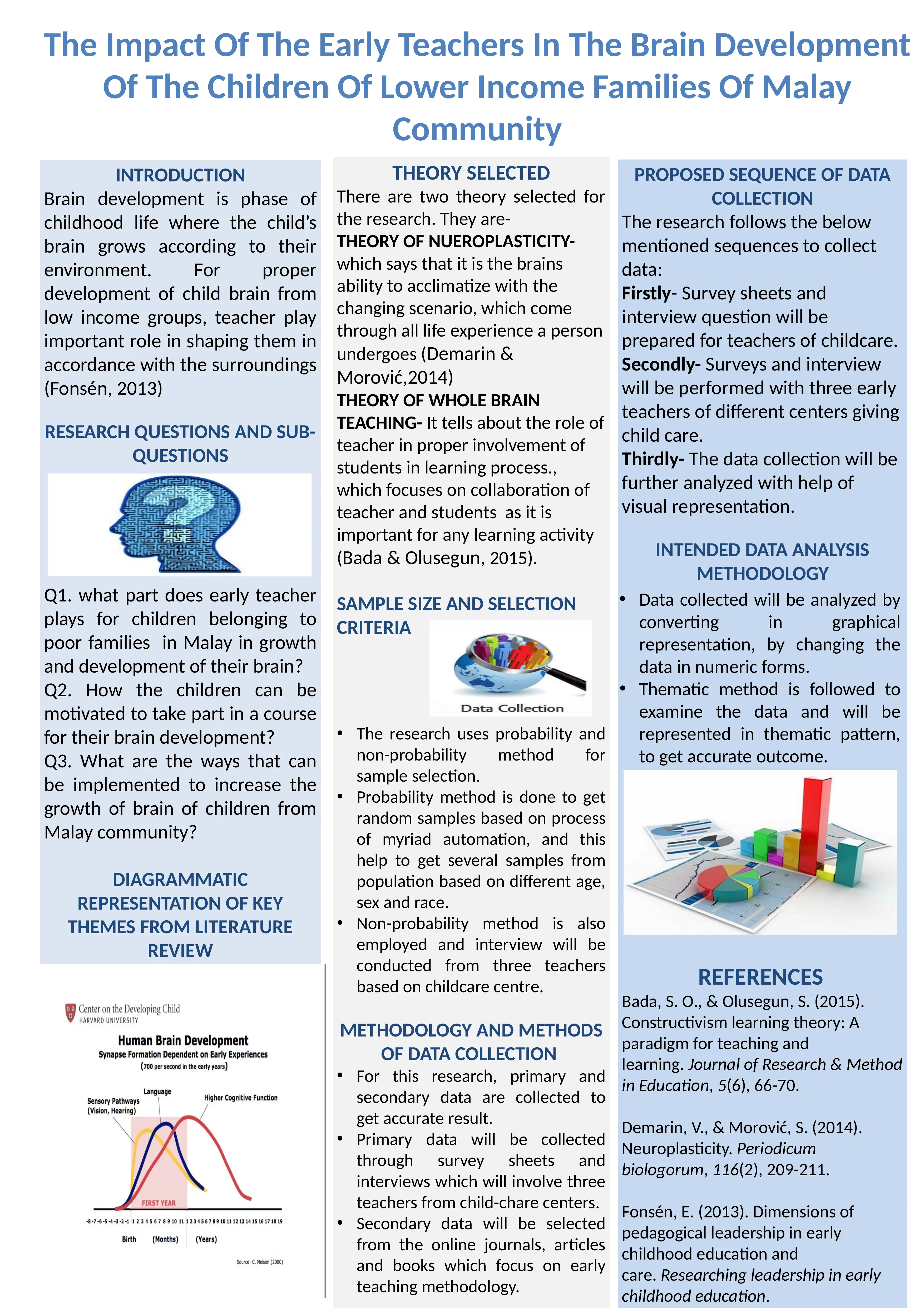Research Proposal: Malay Children's Brain Development & Teachers' Role
VerifiedAdded on 2023/04/24
|1
|561
|220
Project
AI Summary
This research proposal investigates the impact of early teachers on the brain development of children from low-income Malay families. It explores the significance of early childhood education in shaping young minds, focusing on the challenges and opportunities within this specific demographic. The study poses research questions about the role of teachers in promoting brain growth, motivation strategies for student participation, and effective methods for enhancing brain development within the Malay community. The methodology involves both primary data collection through surveys and interviews with childcare teachers, and secondary data from online journals and articles. The research employs the theories of neuroplasticity and whole-brain teaching to guide data analysis and interpretation, utilizing thematic analysis and graphical representations to present the findings. The project aims to contribute valuable insights into how educators can positively influence the cognitive development of children from disadvantaged backgrounds, highlighting the importance of early intervention and culturally sensitive teaching practices. The research also considers the influence of the environment and the educational infrastructure on the children.







![[object Object]](/_next/static/media/star-bottom.7253800d.svg)